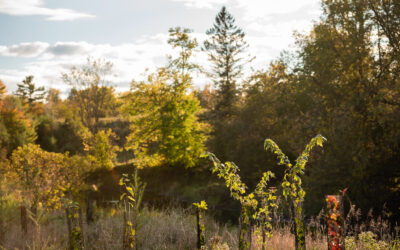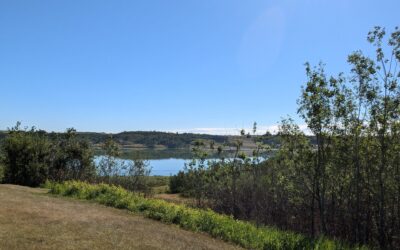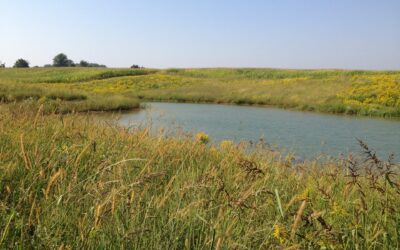$75,000 grant supports ALUS participants in creating and enhancing grassland, wetland, forest and riparian ecosystems in Ontario and Quebec.
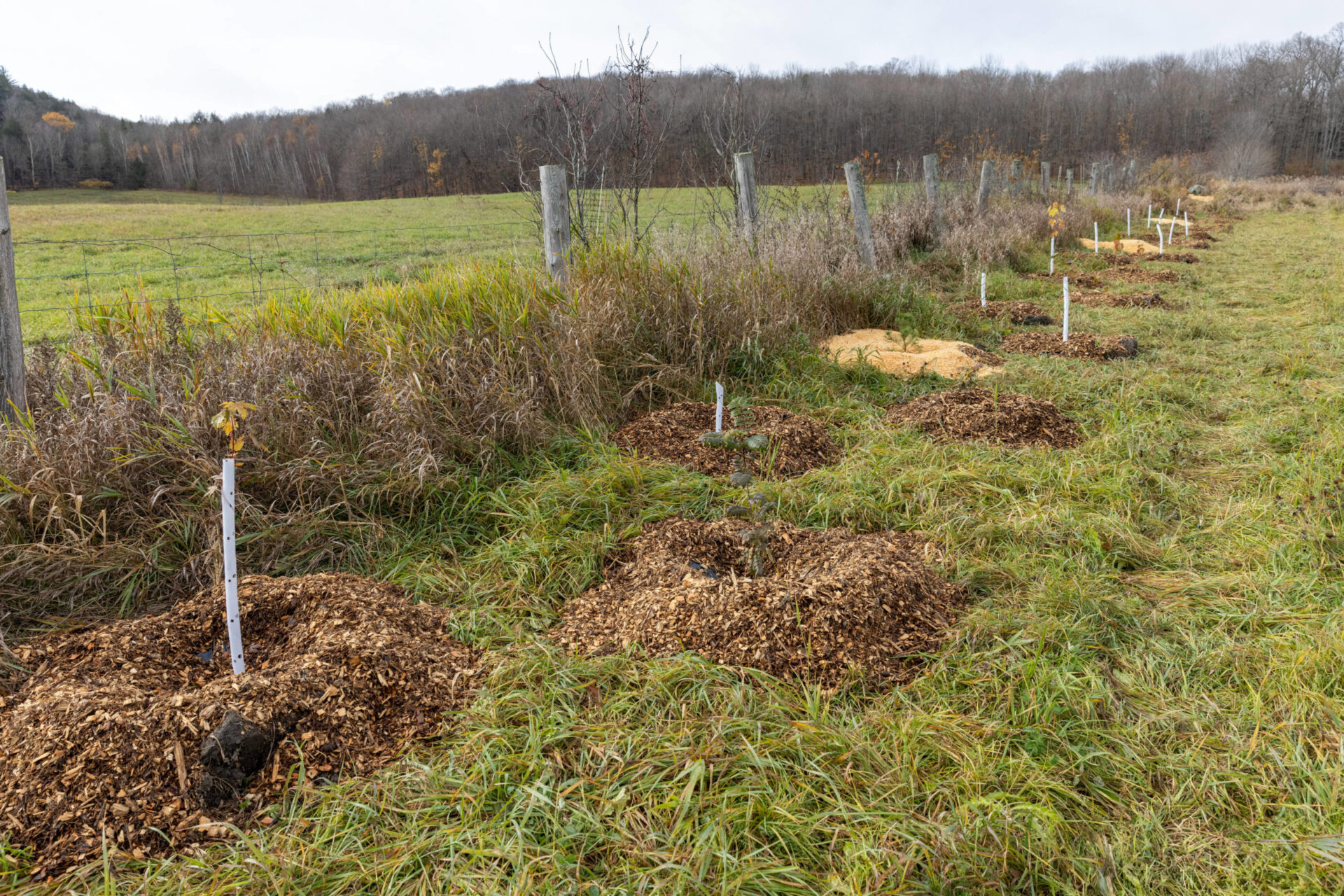
An ALUS windbreak of native trees and shrubs in Outaouais, Quebec, undertaken with support from WWF-Canada. Photo: Philippe Boivin.
In 2021 and 2022, WWF-Canada’s funding allowed ALUS Chatham-Kent and ALUS Outaouais to successfully deliver 20 hectares of projects encompassing a range of critical ecosystems. Participating farmers receive initial project funding, as well as ongoing financial compensation for the maintenance and management of the ecosystems they create under the ALUS program. These nature-based solutions to environmental challenges, like biodiversity loss, flooding and drought, deliver long-term benefits to the land and surrounding communities.
“Through ALUS, farmers in Ontario are creating essential outcomes for their communities, supporting native plant and animal species and building environmental resilience,” says Alyssa Cousineau, Eastern Hub Manager for ALUS. “Funding provided by WWF-Canada’s Nature and Climate Grant Program, presented in partnership with Aviva Canada, make it possible for ALUS to finance local programs that support farmers in creating these vital outcomes.”
This program has helped support farmers like Ian McClatchy, who was one of the first participants in the ALUS Outaouais program, which launched in 2021. With ALUS Outaouais, Ian planted a double row of native trees and shrubs.
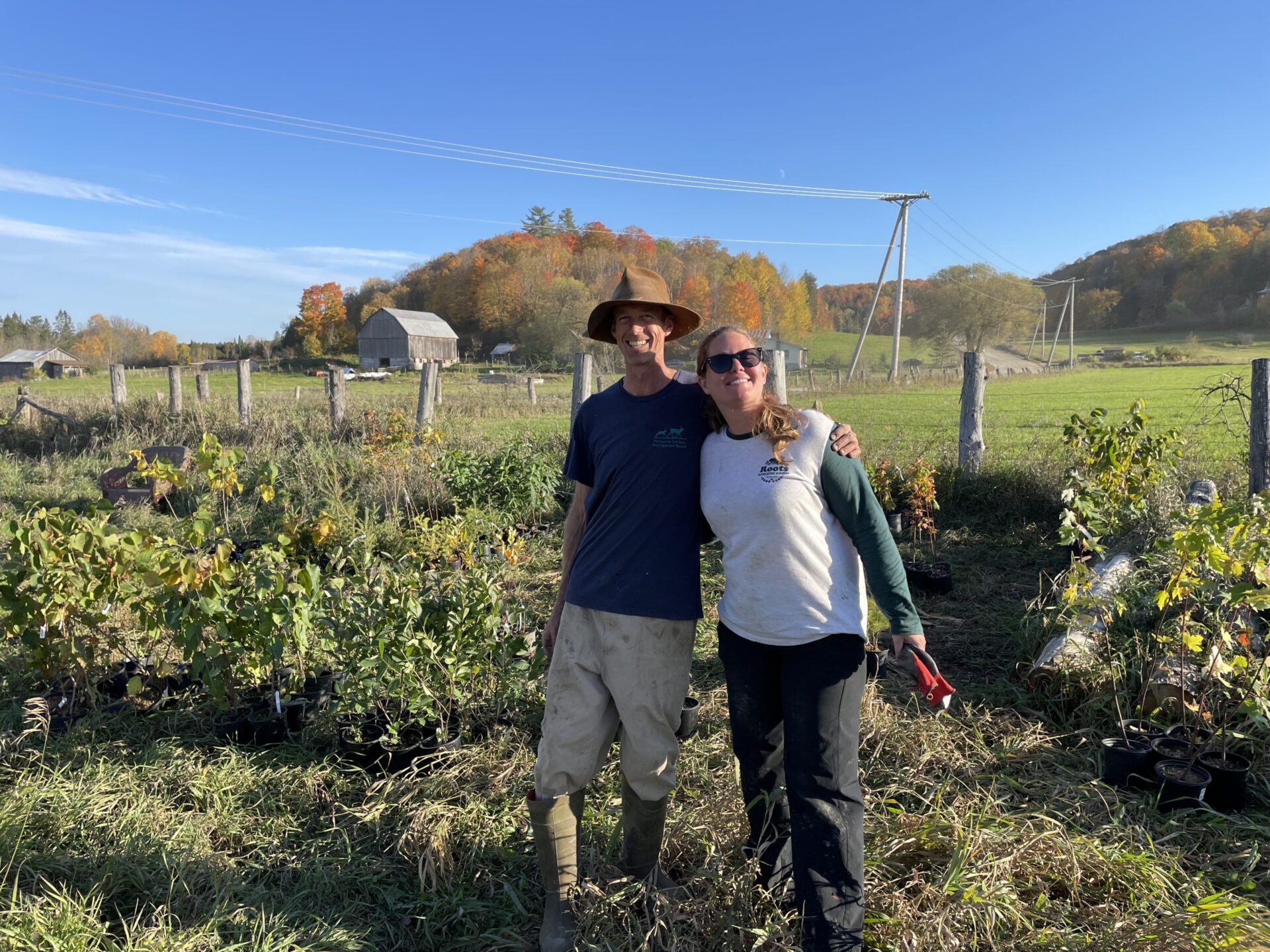
Alyssa Cousineau (right) helps Ian McClatchy with planting trees and shrubs on his farm in Outaouais, Quebec.
This project will provide long-term benefits to Ian’s farm, slowing the wind, capturing water and storing carbon. Each function helps to address broader environmental concerns, but they also contribute to localized successes for the participating farmer.
Moreover, the project was undertaken with the neighbouring farms, Ferme Forêt and Ferme Sol, that also planted a single row of trees, creating a cross-property tree and shrub windbreak. This collaborative spirit underpins the success of ALUS, through which communities and individuals receive, contribute and create support for each other and the environment.
“WWF-Canada is thrilled to support groups like ALUS taking meaningful and measurable actions to restore nature through our Nature and Climate Grant Program,” says Heather Crochetiere, Senior Specialist of Ecosystem Restoration with WWF-Canada. “The benefits generated through the work of ALUS Chatham-Kent and ALUS Outaouais are a fantastic example of the potential for nature-based climate solutions to use the unique powers of nature to both capture and store carbon, which helps mitigate climate change, and safeguard species.”
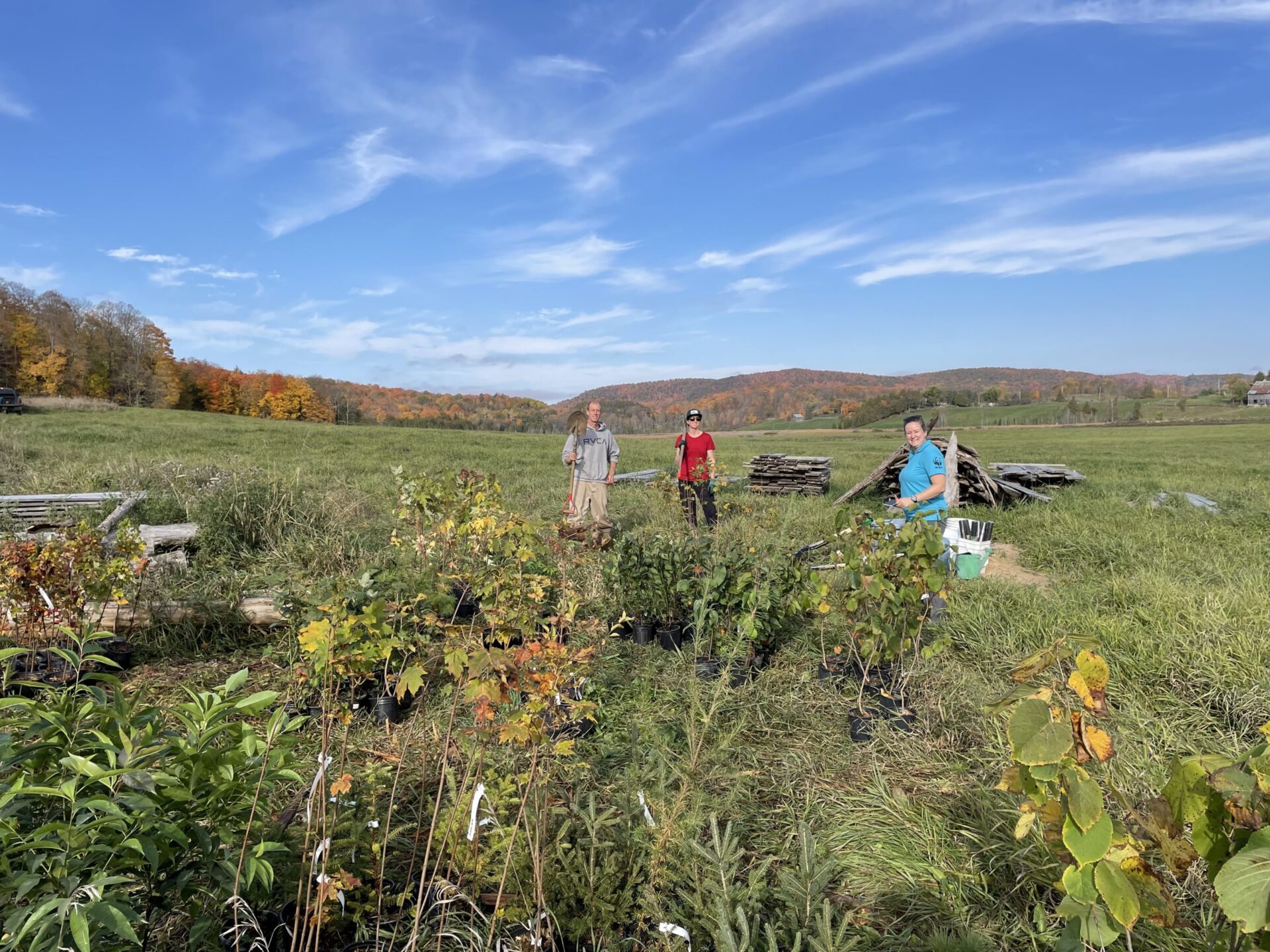
Volunteers from WWF-Canada got hands-on with Ian McClatchy’s tree and shrub windbreak.
In ALUS Chatham-Kent, Betty and Allan Hubbell worked with ALUS to create 3 acres of native grassland that will work in harmony with hardwood forest on their land to create a vibrant, resilient and diverse ecosystem, one that is intended to provide benefits well into the future.
“We have one young grandson, now 18 months old. And the second grandson on the way is due to arrive this spring,” said Allan Hubbell. “We hope this project plays a small part in building our sustainable future for a better environment as they grow towards adulthood.”
Projects like Ian McClatchy’s and the Hubbells’ are just two examples in an incredible network of more than 1,100 farmers and ranchers across Canada that are working with ALUS to create vital ecosystem functions through construction or enhancement of green and blue infrastructure.
ABOUT ALUS
ALUS (originally an acronym for Alternative Land Use Services) is an innovative program initiated by a charitable organization that sustains agriculture and biodiversity for the benefit of communities and future generations. ALUS provides direct financial and technical support to a network of more than a thousand farmers and ranchers who deliver ecosystem services in more than 31 communities across Canada, such as cleaner air, cleaner water, carbon sequestration, erosion control, flood mitigation, pollinator support and wildlife habitat. Learn more at ALUS.ca.

